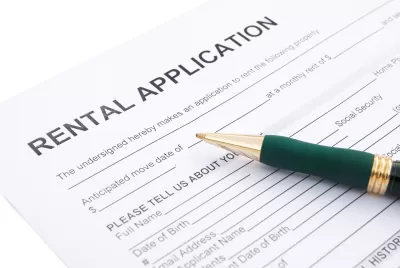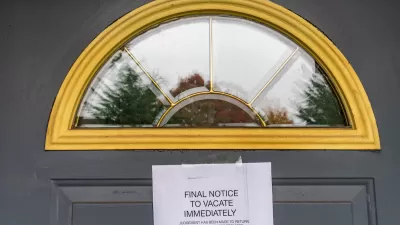The administration is urging states to more heavily regulate application fees, administrative fees, and other often hidden costs imposed on renters.

The Biden administration is calling on states to issue more regulations around so-called “junk fees” for renters, reports Andrew Keshner in MarketWatch. “These costs, which often come as a surprise, include application fees, administrative fees, parking fees, and even pet fees.”
According to Keshner, “As part of the anti-junk fee campaign, several states issued new rules around these fees, and Zillow, the online real-estate marketplace, introduced a ‘cost of renting summary’ that runs through all the fees a renter can expect to pay.”
But “Transparency surrounding these fees is not the same as removing them, rental housing advocates say.” Disclosures, while a step forward, “don’t do anything to lessen or eliminate the fees.” Ariel Nelson, a staff attorney with the National Consumer Law Center, says many of the mechanisms used by landlords are inherently problematic. “Credit checks and wide-ranging tenant screening services can contain inaccuracies, Nelson said. Tenant-screening reports can unfairly reveal a person’s entanglements with the criminal justice system, including an arrest that resulted in a case being dismissed, she noted.”
A U.S. Department of Housing and Urban Development study found that Black, Hispanic, and Asian-American renters are “much more likely” to be charged application fees than white renters, Keshner adds.
FULL STORY: White House wants to expose ‘junk fees’ imposed on renters — but erasing them will be a tougher task

Maui's Vacation Rental Debate Turns Ugly
Verbal attacks, misinformation campaigns and fistfights plague a high-stakes debate to convert thousands of vacation rentals into long-term housing.

Planetizen Federal Action Tracker
A weekly monitor of how Trump’s orders and actions are impacting planners and planning in America.

In Urban Planning, AI Prompting Could be the New Design Thinking
Creativity has long been key to great urban design. What if we see AI as our new creative partner?

King County Supportive Housing Program Offers Hope for Unhoused Residents
The county is taking a ‘Housing First’ approach that prioritizes getting people into housing, then offering wraparound supportive services.

Researchers Use AI to Get Clearer Picture of US Housing
Analysts are using artificial intelligence to supercharge their research by allowing them to comb through data faster. Though these AI tools can be error prone, they save time and housing researchers are optimistic about the future.

Making Shared Micromobility More Inclusive
Cities and shared mobility system operators can do more to include people with disabilities in planning and operations, per a new report.
Urban Design for Planners 1: Software Tools
This six-course series explores essential urban design concepts using open source software and equips planners with the tools they need to participate fully in the urban design process.
Planning for Universal Design
Learn the tools for implementing Universal Design in planning regulations.
planning NEXT
Appalachian Highlands Housing Partners
Mpact (founded as Rail~Volution)
City of Camden Redevelopment Agency
City of Astoria
City of Portland
City of Laramie





























